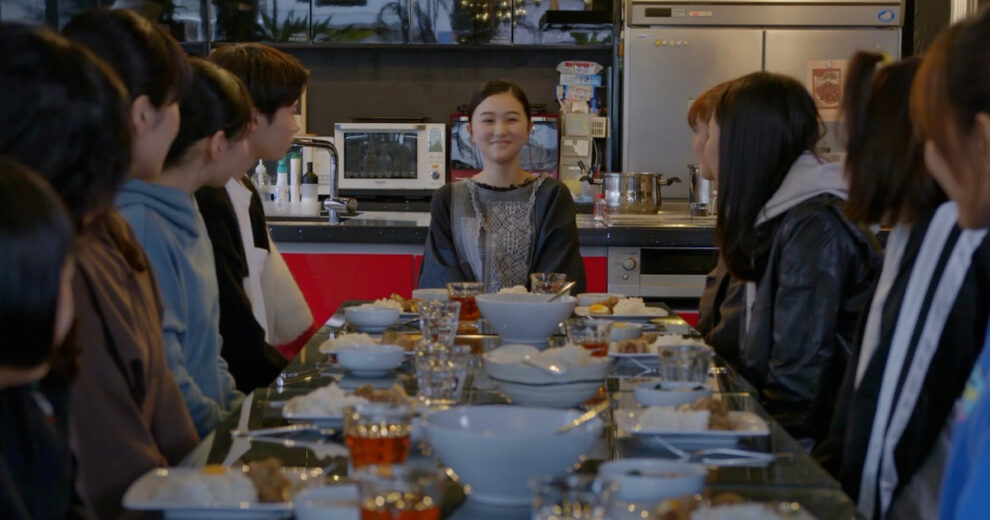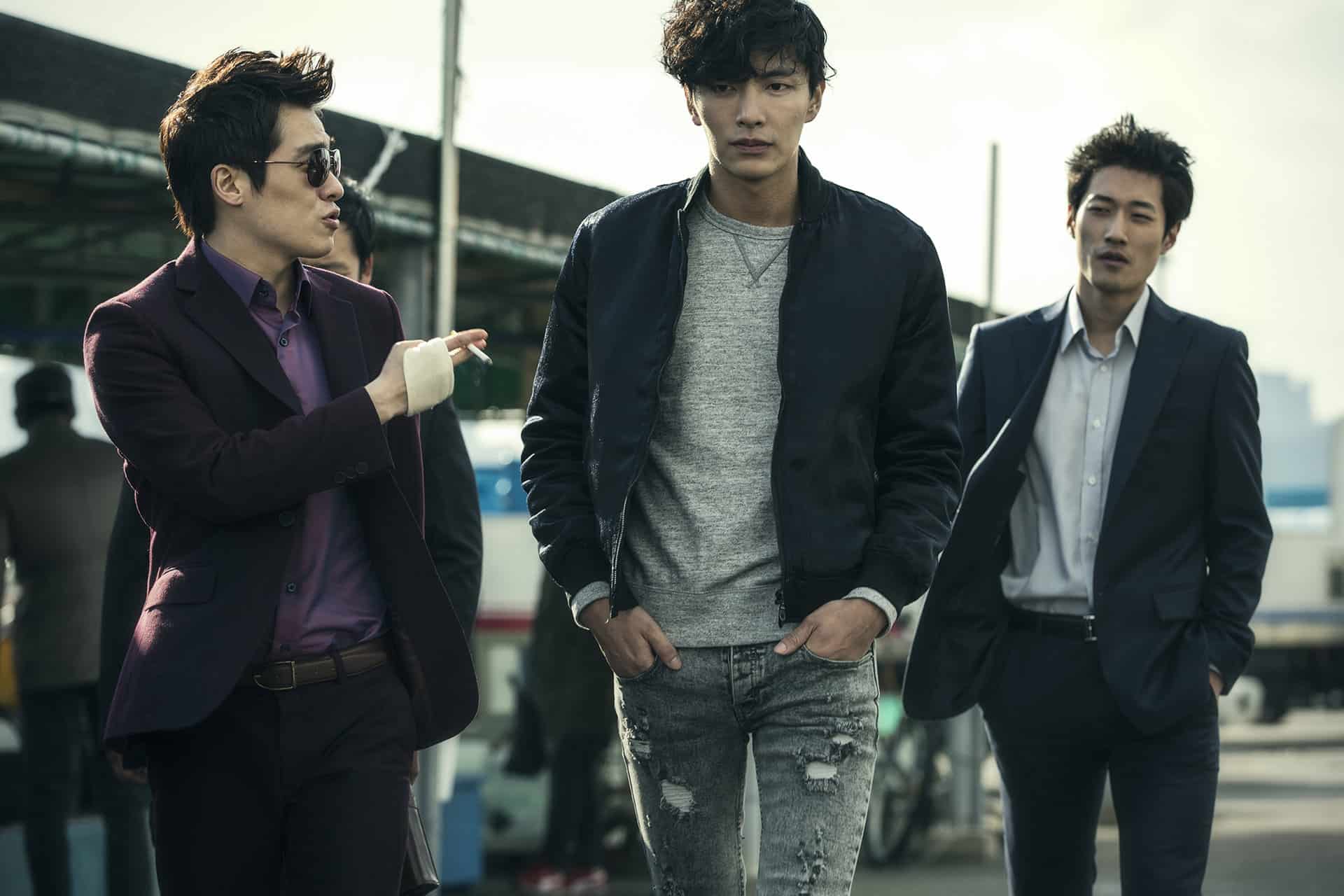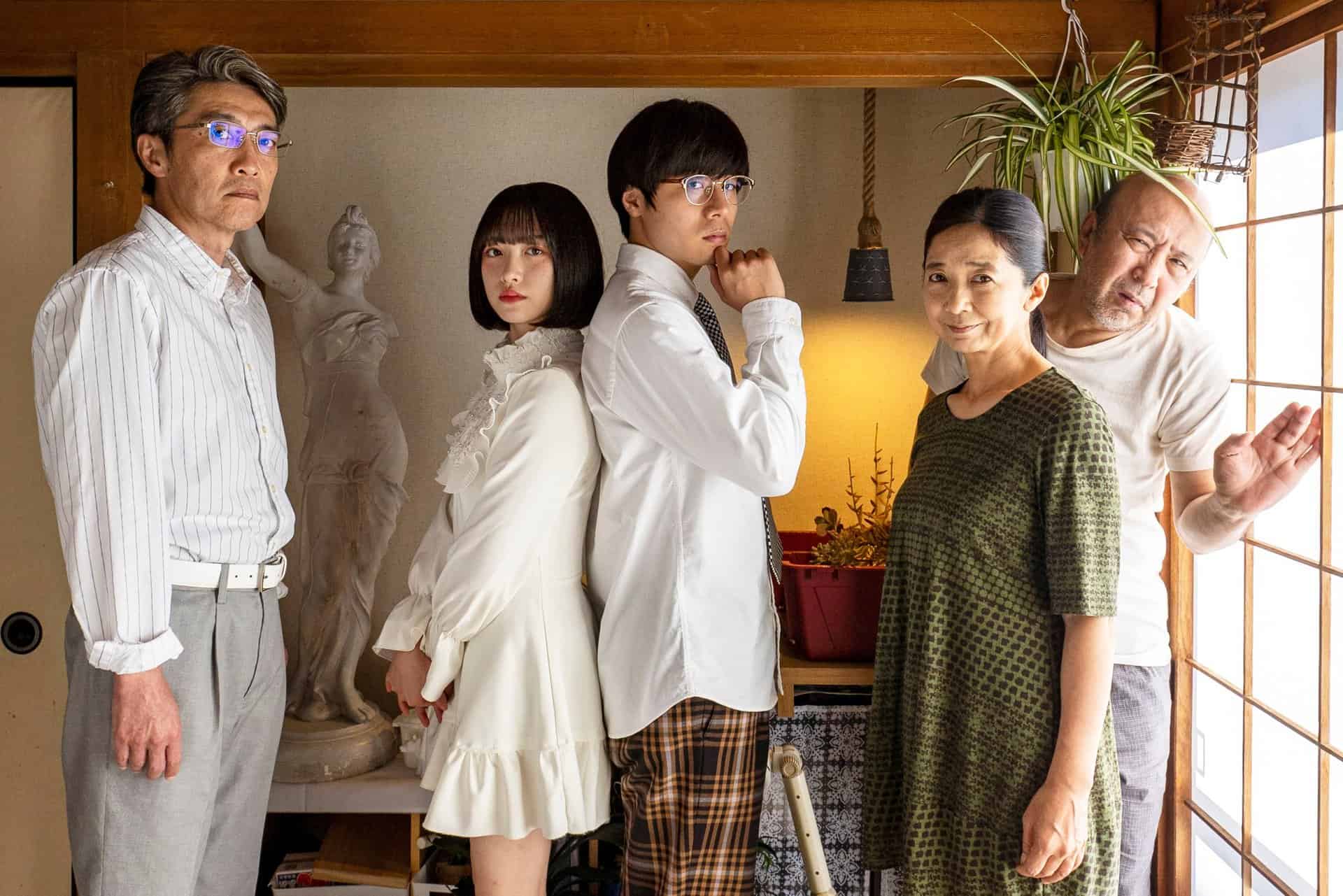Considering the impact the, essentially newly found #MeToo movement in Japan had the last few years, as a number of scandals came to the fore, local cinema was bound to start dealing with the concept. Urara Matsubayashi, who is also an actress who was a victim of sexual assault herself, seems like the ideal person to talk about what is happening in that regard, in her directorial debut, “Blue Imagine”.
Blue Imagine is screening at International Film Festival Rotterdam

The film begins in rather harsh fashion, with a director and a producer getting an actress who is vying to be in a movie drunk, and one of them doing something completely despicable to her as soon as they are left alone. The said actress, Noel, later finds herself going to Blue Imagine, a cafe/restaurant which also doubles as sanctuary for women who have fallen victims of assault, even offering them cheap apartments in the same building the cafe is. Gradually, Noel starts to heal, but the aforementioned director and producer continue to do what they have been always doing. When two more women, both victims of the same man, reach Blue Imagine, the three of them decide to speak out.
Check the interview with the director
The notion of who these males of the industry actually are is implied but is also clear, although it seems that Matsubayashi essentially used them as a “sample” in order to highlight how the whole Japanese industry functions in that regard. At the same time, the focus is less on the accusation and more on the ways victims of sexual assault can heal, with the director promoting a solution that involves a number of them coming together and building their courage to speak up. This, however, is not a story of triumph, and the obstacles the three women stumble upon in order to get some sort of justice, are quite difficult to overcome, as the scene with the journalist eloquently highlights. Even when they do succeed, actually, their impact is definitely not as significant as one would think, in the same aforementioned fashion that shows that their healing is much more important than the perpetrators getting punished.
At the same time, Matsubayashi also tries to state how far this phenomenon has penetrated Japanese society, eventually including a Filipina immigrant woman, Jessica, in the list of victims, and even a man who lives in the same building. It is somewhere here, though, that the movie begins to falter, since these concepts are essentially forced in the narrative, with the Filipino one obviously being there due to the international collaboration that gave birth to the movie. That Iana Bernardez is quite good in the role, does tone down this element, however. The same applies to the concept of ‘sugar dating', young women dating older men essentially for money and gifts, which definitely suffocates in the 93 minutes the movie lasts. Lastly, some scenes like the one with the singing and the overall use of music could have been handled better.
On the other hand, there are some sequences that truly stand out, with the confrontation with the director, the interaction with the journalist, and the interactions between the female journalist and her friend, which move into paths of absurd humor, definitely staying in mind. The presence of Hirobumi Watanabe in the last one definitely helps.
The acting is also on a good level, with Mayu Hamaguchi as Noel highlighting her inner struggle though a measured but eloquent fashion and Yoshihiko Hosoda presenting a truly despicable villain, also due to his cowardice ways.
Ishao Ishii's cinematography highlights the bleakness of the story in the beginning as much as the “brightness” of the later parts in fitting terms, with the coloring mirroring the status of the girls. Tomomi Kikuchi's editing results in a relatively slow pace that suits the aesthetics of the story.
Despite some issues with the story and narrative, “Blue Imagine” emerges as a very important film, due to Matsubayashi's will to speak about issues that are still considered taboo in Japan, as much as the non-polemic approach she implements throughout the movie. Considering that this is a debut, I would be interested to see where the actress/director/producer moves next.














